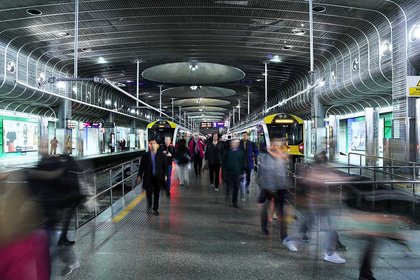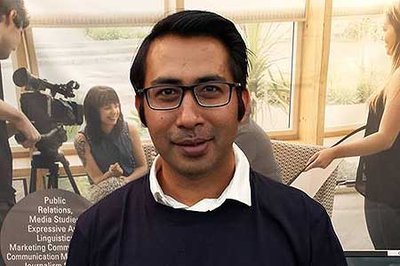
The survey investigated how New Zealanders have been impacted by the global pandemic. Image Credit: NZ Story.
The findings of a recent nationally representative survey by Massey University reveals one in three New Zealanders or a member in their household lost income from a job or business or had their work hours reduced, as a result of COVID-19.
The survey, Aotearoa New Zealand Public Responses to COVID-19, investigated how New Zealanders have been impacted by the global pandemic, including everything from job and income losses, depression, their attitudes towards immigration in a post-COVID-19 New Zealand and their response to Government actions.
The survey was led by two lecturers in the School of Communication, Journalism and Marketing, Dr Jagadish Thaker and Dr Vishnu Menon.

Dr Jagadish Thaker.
“The purpose of this research was to find out how New Zealanders were coping with the lockdown and some of the flow on effects they are experiencing as a result,” Dr Thaker says. More than 1000 people completed the survey during Alert Level 1.
The findings showed Māori were twice or more likely to say they or a household member had lost a job (20 per cent compared to 11 per cent of New Zealand Europeans—a census category) while 34 per cent were unable to pay monthly bills, more than double that of New Zealand Europeans at 14 per cent.
“The disproportional economic, social, and health impacts on Māori reflect similar experiences of unequal COVID-19 burden among minority groups around the world and highlight an urgent need for specific policies to address this gap.”
Almost half of respondents reported having trouble sleeping, experiencing depression, or were cut off from their social networks. A third of respondents also said they had lost money in retirement accounts or investment.

Dr Vishnu Menon.
Nine in 10 New Zealanders think there will be more job losses in the next six months. “Although we are out of lockdown, these findings show that the majority of New Zealanders perceive the future is going to be tough,” Dr Thaker says.
One of the most surprising findings, the researchers say, was New Zealanders’ attitudes to immigration and tourists coming to the country. More than eight out of 10 New Zealanders strongly supported (88 per cent) stopping immigration from countries that have poorly managed their response to the virus, like the U.S. Meanwhile, seven out of 10 respondents supported reducing immigration and stopping tourists from China.
“This was surprising because tourism and immigration is typically seen as a backbone of the New Zealand economy, however we are imagining Kiwis are feeling safe after sacrificing so much to stamp out the virus and do not want to see it returning.”
At the forefront of New Zealanders’ minds heading into the September elections is health care. About nine in 10 New Zealanders said health care is extremely or very important for their vote, followed closely by affordable housing, the economy and COVID-19.
There was a resounding approval for how the Government handled COVID-19, with very high praise for the Prime Minister Jacinda Ardern and the Director General Health Dr Ashley Bloomfield’s communication efforts.
“New Zealand had timely communication from trusted leaders who the public felt connected to. There was a feeling of unity and a sense that we had a leader looking after us, which was in sharp contrast to other leaders in the U.S. and UK,” Dr Thaker says. “New Zealand has become the envy of the world as our lives return to normality.”
Dr Thaker says it is concerning there were some respondents who believed conspiracy theories such as ‘5G is responsible for the virus’, ‘hydroxychloroquine can prevent or kill the virus’ and 34 per cent of respondents believe the virus was created in a lab. However the vast majority knew these were fake.